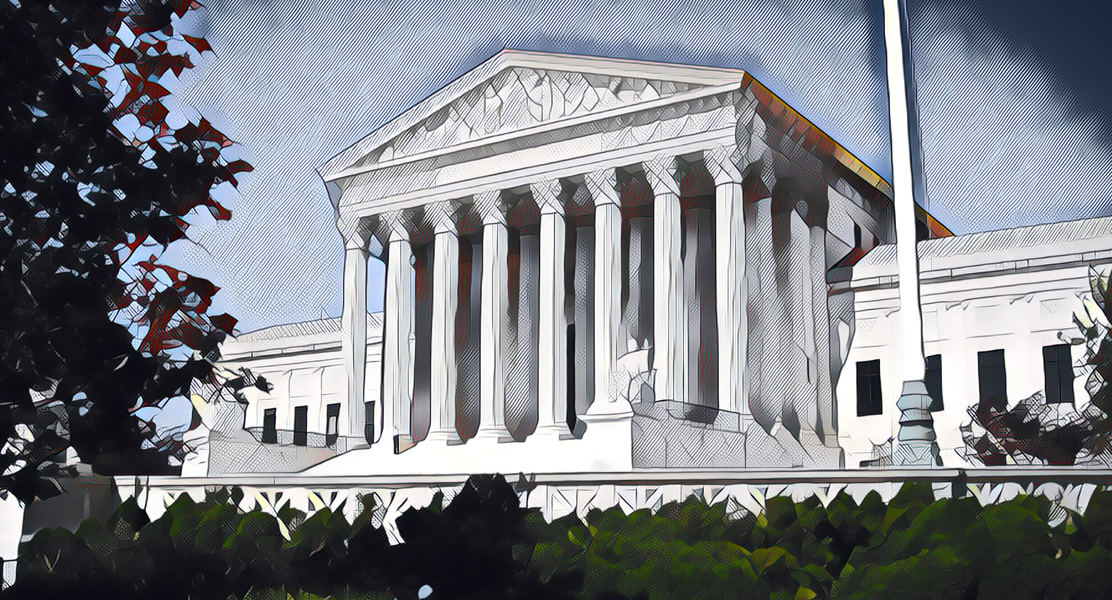BJC reviews Amy Coney Barrett’s church-state record, warns against questioning her religious views

In a letter to the Senate Judiciary Committee in advance of their Supreme Court confirmation hearing for 7th U.S. Circuit Court of Appeals Judge Amy Coney Barrett, BJC urged senators to question her judicial philosophy when it comes to religious freedom because “her record as a judge in church-state matters is slim.”
A review of the 600+ appeals court cases she has been involved with as a judge revealed only nine that included church-state or religious liberty questions. Barrett did not write an opinion – majority, concurring, or dissent – for any of the nine, most of which were unremarkable unanimous opinions. She did join the majority opinion in Illinois GOP v. Pritzker, which challenged the COVID-related prohibition on political gatherings in light of the exemption for religious gatherings. The court in that case upheld the distinction. In Grussgott v. Milwaukee Jewish Day School, Barrett joined a majority opinion that applied the ministerial exception to deny a suit brough by a teacher claiming wrongful termination because her job included religious functions. Earlier this year, the Supreme Court reached a similar conclusion in Our Lady of Guadalupe School.
With a slim record on church-state issues yielding little insight, the letter noted that Judge Barrett’s alignment with the views of her former boss, Justice Antonin Scalia, provided more troubling concerns about her potential approach to religious liberty questions. Here is an excerpt from the letter:
She has indicated that she would try to emulate him (“his judicial philosophy is mine too”). Justice Scalia, wrote the notorious decision in Employment Division v. Smith in 1990, which is widely seen as undercutting the free exercise of religion. The Smith decision was the impetus for the bipartisan passage of the Religious Freedom Restoration Act of 1993. It is unclear whether Judge Barrett approves of Smith, but that is not the only concern for religious liberty.
Justice Scalia’s decisions reject the kind of government neutrality BJC believes the Establishment Clause demands. Despite the plain text of the First Amendment and a historical record that indicates otherwise, Justice Scalia maintained that the First Amendment allows government to favor religion over irreligion so long as it doesn’t explicitly prefer one religion over another. Justice Scalia supported government-sponsored religious displays and official prayers at local government meetings.
In short, there is plenty to question Barrett about in terms of her judicial philosophy, (the letter includes a list of proposed questions at the end) and no reason to include inquiries into the judge’s personal religious views. As BJC Executive Director explained in an essay for Good Faith Media, “Judge Barrett’s religion should neither help nor hinder her in the confirmation process.”
In approaching the confirmation hearings, all senators should remember an important, constitutional ground rule: Do not ask questions that appear to impose a religious test. Doing so would violate one of the core constitutional pillars upholding religious freedom for all.
Religion is mentioned only once in the original text of the U.S. Constitution: Article VI says, “but no religious Test shall ever be required as a Qualification to any Office or public Trust under the United States.”
The founding framers decided that a person’s religious identity – or lack thereof – is completely irrelevant to whether that person is qualified to hold an official position in our government.
You can read the letter from BJC to the Senate Judiciary Committee here.




